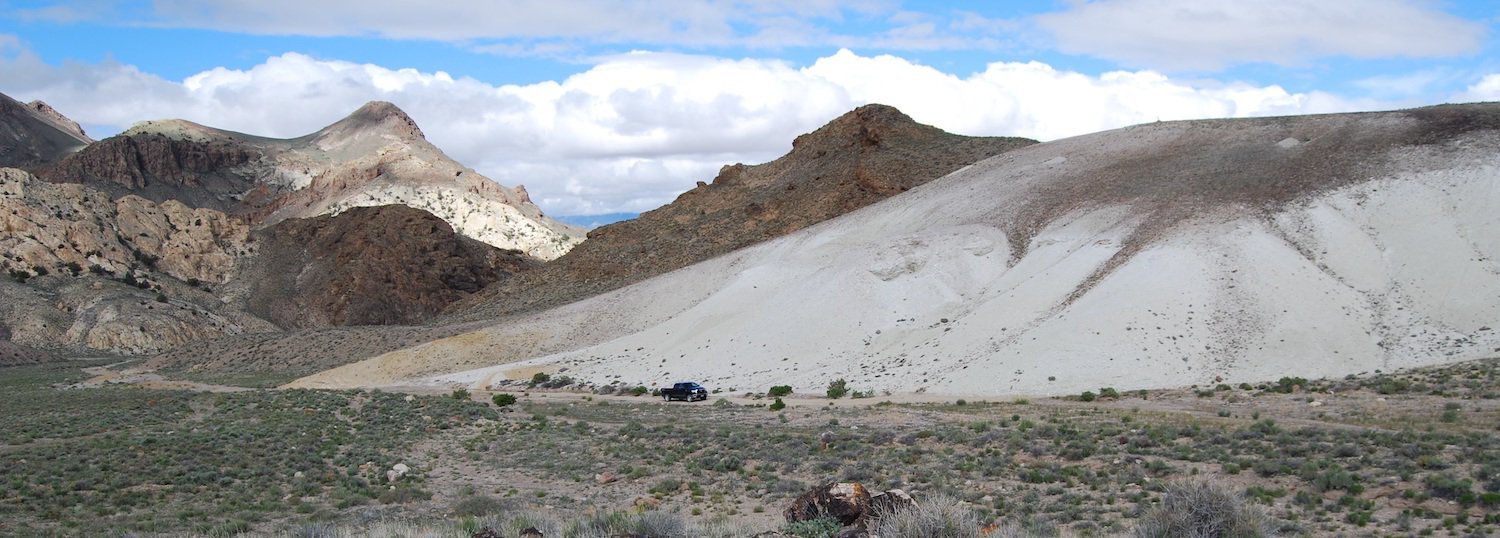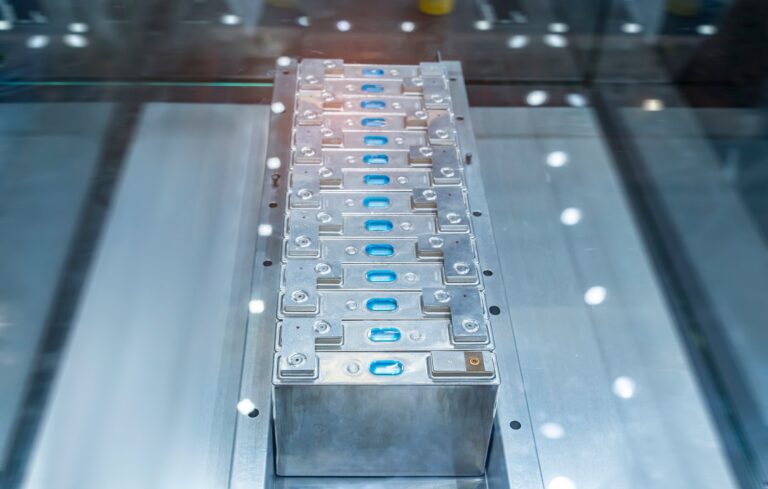In August 2023, a discovery was made in a Nevada lithium mine that sent shock waves through the energy industry. An estimated 20 to 40 million tons of lithium lie within Thacker Pass in the McDermitt Caldera. This find could well be the largest lithium deposit in the world.
Nevada has long been known for its mineral wealth. It stands as a significant player in the global lithium market alongside countries like Chile, Australia, and Argentina. Together, these three countries have lithium reserves amounting to more than 19 million tons.
In this article, we’ll examine the potential implications of Nevada’s lithium goldmine. We’ll also look at how the mine can pave the way for clean energy initiatives in North America.
Why Is Lithium Important for Green Energy?
Every year, the urgency to combat climate change is increasingly apparent. As we face rising temperatures, extreme weather patterns, and dwindling natural resources, it seems wise to improve our energy practices. This is where sustainable sources of energy like lithium prove critical.
Lithium plays an integral role in the world’s transition to renewable energy sources. For instance, lithium-based storage systems can stabilize electricity grids and store surplus energy generated from solar and wind power. Electric vehicles (EVs) and mobile devices use lithium-ion batteries as well.

With the discovery of the lithium reserve in the Thacker Pass, Nevada, lithium mine, the energy sector stands to gain several key benefits. For instance:
- Lower Environmental Impact: The environmental footprint of lithium mining is lower compared to the extraction and processing of fossil fuels. Lithium extraction does have some environmental considerations, such as water usage and habitat disruption. But advancements in mining practices and regulatory oversight can minimize its impact.
- Resource Efficiency: Lithium-ion batteries are more resource-efficient than traditional energy storage technologies. They have a longer lifespan, require less frequent maintenance, and are recyclable. Also, recycling lithium-ion batteries can help recover materials like lithium, cobalt, and nickel. This reduces the need to extract more materials from lithium mines in the U.S.
- Energy Efficiency: Lithium-ion batteries have low self-discharge rates and minimal energy loss during charging and discharging cycles. This makes them well-suited for applications like residential energy storage, commercial power management, and grid-scale energy storage projects.
- Decentralization of Energy Systems: The minerals extracted from the Nevada lithium mine can be used to support the development of decentralized energy systems and microgrids. In turn, communities can generate, store, and manage their renewable energy locally. This improves resilience against power outages and optimizes energy overall use.
Where DOES Nevada Get All Its Lithium?
Lithium mining in Nevada began in the late 20th century when exploration of the area revealed the potential to extract lithium claystone deposits. Today, the state is home to multiple lithium mining projects.
One is the Rhyolite Ridge Lithium-Boron Project, located in Esmeralda County, Nevada. Owned by Ioneer, one of Dragonfly Energy’s partners, the mine is among the largest known deposits in North America. As of 2023, experts estimate that the region contains 146.5 million metric tons of lithium and boron.
Another prominent lithium mine in Nevada is the Clayton Valley Lithium Brine Project. Spanning 23,300 acres, this project focuses on extracting lithium from brine contained in a series of aquifers.
Then you have the Nevada lithium mine along Thacker Pass in Humboldt County. Experts believe this region could be the biggest deposit of lithium in the world. The only problem is that beginning the lithium mining process for this particular area is proving to be a challenge.
However, proponents emphasize the importance of domestic lithium production to advance clean energy initiatives. In response to any concerns of beginning the lithium mining process, regulatory agencies have intensified their oversight of mining projects to evaluate and mitigate these impacts.
The Importance of Having a Domestic Source of Lithium
In today’s rapidly evolving technological landscape, lithium has emerged as the world’s new oil. With companies worldwide racing to secure lithium supplies, the significance of having a domestic source of the mineral has never been more pronounced.

Most lithium production today lies outside the United States. In fact, as of 2021, China accounts for nearly 75% of the world’s lithium-ion manufacturing capacity. But having a lithium mine in Nevada will reduce the U.S.’s dependence on imports. As a result, it’ll be easier to meet the growing demand for lithium-ion batteries in North America without worrying about price fluctuations.
Experts consider lithium to be a strategic resource due to its importance in clean energy technologies and its potential to drive economic growth and innovation. Ensuring domestic access to reserves like the expansive Nevada lithium mine reduces vulnerability to supply chain disruptions and geopolitical tensions.
What’s more, recent news shows the lithium battery market is projected to reach $93.3 billion in 2028. This can incentivize both domestic and international companies to allocate resources toward exploration, extraction, and processing operations in Nevada.
But perhaps one of the biggest economic benefits of having a domestic lithium source is its potential to create new jobs. With more lithium mining projects comes a demand for manpower. This can help reinforce economic activity in rural communities.
Achieving Self-Sufficiency in Lithium Production
The United States has a relatively abundant supply of lithium—about 8 million metric tons, according to 2023 estimates. Still, that’s only 1% of the global production of lithium.
In response, the U.S. government has taken steps to boost the Nevada lithium mine industry and explore the possibility of lithium extraction in other parts of the country. For instance, in 2022, the Biden Administration declared it a matter of national interest to develop a domestic supply chain for critical minerals like lithium.
The administration is also promoting the manufacturing and sales of electric vehicles. In 2022, it awarded $2.8 billion in grants to help expand the domestic manufacturing of EV batteries. It also plans to provide a $7,500 tax credit for EVs if the batteries are made from materials sourced locally.
Finally, there’s an increased investment in expanding domestic lithium mining. This includes exploring sources of interest beyond the Nevada lithium mine sites. Some examples are the lithium-rich brine deposits in the Salton Sea and the Salton Sea Known Geothermal Resource Area (KGRA) in California.
The Nevada Lithium Mines are Driving the Transition To Clean Energy
The Nevada lithium mines hold immense potential to accelerate clean energy initiatives across North America. Their significant reserves and strategic importance in lithium production play a pivotal role in supporting the transition to renewable energy sources and reducing the dependence on fossil fuels.
To navigate the challenges of climate change, we must invest in responsible lithium mining practices. This will propel us to a cleaner, more resilient world for generations to come. The lithium mining partners we have in the state of Nevada are committed to this mission.
As a premier manufacturer of lithium-ion deep-cycle batteries, our goal is to make renewable energy storage solutions more accessible. Contact us today to learn how we’re shaping the future of clean energy—and how you can be part of this transformative journey.



